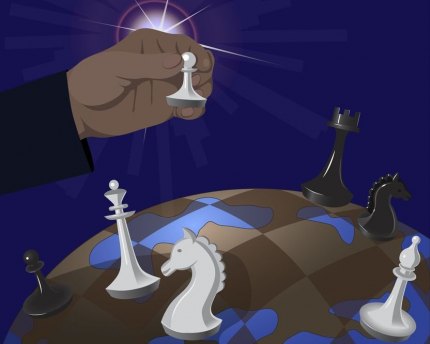Tariffs: Win or risk for American workers

Canada filed a complaint against the U.S. at the World Trade Organization on Friday. The European Union also filed a challenge. French President Emmanuel Macron was quoted by the Associated Press describing the tariffs on the European Union as “illegal” and a “mistake.” Leaders from other countries have been critical as well. But is a tariff worth angering allies? Will it bring American steel jobs back? Here is the rundown:
So, what are tariffs? Tariffs are customs duties on merchandise imports.
How are they supposed to work? The idea is to give a “price advantage to locally-produced goods over similar goods which are imported,” according to the World Trade Organization. Tariffs also raise revenue for governments.
While economists generally are opposed to tariffs and prefer "free trade" policies among global economic powers, it is generally acknowledged that tariffs can be justified in less-developed countries. In 1947, the General Agreement on Tariffs and Trade, a set of agreements aimed at reducing tariffs among the contracting nations, acknowledged "the needs of less-developed countries for a more flexible use of tariff protection to assist their economic development and the special needs of these countries to maintain tariffs for revenue purposes."
Will tariffs bring jobs back to struggling communities? That's the idea. But not everyone agrees that it will work, and it could backfire. Greater demand for domestic steel may have a "muted effect on employment in steel production because of technical innovation," according to the website Econofact.org, written by a network of economists and published by the Edward R. Murrow Center at Tufts University's Fletcher School of Law and Diplomacy. The U.S. steel industry shed about three-quarters of its jobs between 1962 and 2005, but "output per worker quintupled—largely due to a new production technology called minimills." In addition, "Higher steel prices could adversely affect other U.S. manufacturing industries that depend on steel as an input to production."
Why is Trump in favor of tariffs? They fit his “America first” ideology. On Saturday he tweeted, “When you’re almost 800 Billion Dollars a year down on Trade, you can’t lose a Trade War! The U.S. has been ripped off by other countries for years on Trade, time to get smart!” (Trump has used the $800 billion figure before, and some economists take issue with this assertion. For more, read this 2016 article on the Forbes website, and this PolitiFact analysis of Trump’s 2017 address to Congress.) Trump has also made the argument that that steel imports are a threat to national security.
Reaction: Canadian Prime Minister Justin Trudeau, interviewed by Chuck Todd for NBC’s Meet the Press, responded, “The idea that the Canadian steel that is in military vehicles in the United States, the Canadian aluminum that makes your fighter jets, is somehow now a threat? … Next week we’re hosing the G-7 summit of world leaders, and the airfield, the military base that Air Force One is going to land on was put there in World War II to protect an aluminum smelter that was providing to the military effort. The idea that we are somehow a national security threat to the United States is quite frankly insulting and unacceptable.”
He added that he didn’t know what Trump wants. “The reason I don’t know is because he’s talked about the fact of… he’s worried about trade surpluses, trade deficits around the world. Well, they (the U.S.) have a $2 billion surplus on steel with us. So, it’s not like trade is imbalanced against the U.S. favor on this.”
Resources:
- Agence France Press: Canada files WTO complaint over 'illegal' U.S. steel tariffs, June 1, 2018, found on Yahoo news.
- Associated Press: Macron calls President Trump's tariff decision 'illegal.' (Found on the Time magazine website.) May 31, 2018.
- Econofact.org: Will steel tariffs put U.S. jobs at risk? By Lydia Cox and Kadee Russ, published by
the Edward R. Murrow Center at The Fletcher School at Tufts University, Feb. 26, 2018. - Encyclopedia Britannica online: General Agreement on Tariffs and Trade.
- Forbes magazine: Donald Trump's Debate Mistake On Trade - $800 Billion Deficit Doesn't Exist, Not Problem If It Did, by Tim Worstall, Oct. 10, 2016.
- The Hill: Trudeau on Trump tariffs: 'I don't know what he wants to accomplish,' by Justin Wise, June 1, 2018.
- PolitiFact: Fact checking Donald Trump's address to Congress, by By Louis Jacobson and Amy Sherman, Feb. 28, 2017.
- U.S. Census.gov: U.S. Trade in Goods and Services.
- World Trade Organization: Tariffs.
Related:
Did NAFTA take jobs from American workers?
If you wish to comment, like us on Facebook and tell us what you think.

